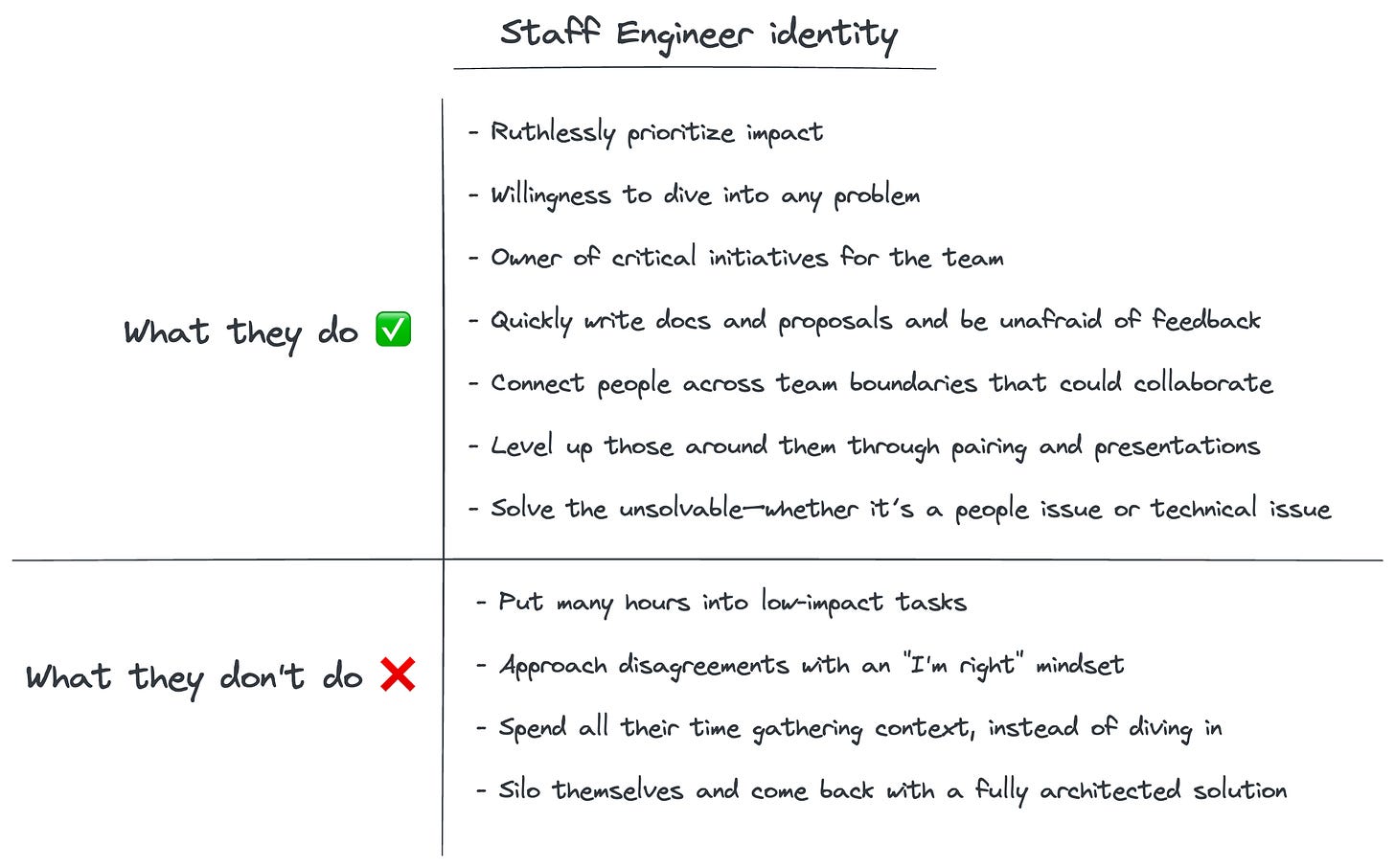5 Powerful Lessons From My Opinionated Mentor
Lessons on promotion, relationship-building, and goal-setting
A million people out there will tell you that you should have a mentor.
But today, we’ll meet an actual mentor. My mentor.
You might even know him! His name is Taha Hussain. He was a Principal Engineering Manager at Microsoft and a Senior Director of Engineering at Walmart.
Taha has taught me things that have stuck.
Taha pushed me outside my comfort zone, challenging the way I thought about things and tackling problems in ways I had no idea about.
Yes, he is opinionated, but that’s his best trait. He calls you on your BS.
It wasn’t easy for him because I was (and still can be 😄) stubborn. But he’ll be happy to know that I’ve taken so many of the lessons with me to this day.
Today, I’ll share the 5 most important lessons I learned from Taha’s 20+ years of experience that can reshape your career.
Welcome, fellow High Growth Engineer! Each week, I send an article on Sunday to all subscribers providing concise, actionable advice to grow faster in your career.
Every other week, paid subscribers get exclusive access to the full article and TLDR. Free subscribers will have access to about half of the article.
I’d love for you to join the 400+ paid subscribers and access the full article + tons of other benefits. Use the button below to join!
Lesson 1: Set goals and make a plan ⭐️
Taha helped me grow both from an engineer and creator perspective.
One of the things he had to push me hard on was setting goals and planning.
I pushed back a lot.
My most common excuse was, “Everything changes so much. It’s a waste of time. I focus on inputs instead.”
But eventually, he got to me. I was getting overwhelmed with trying to keep up with everything I wanted to do and I wasn’t focusing on what mattered. I’d end up with a mountain of educational videos to watch or articles to read and I never got done what mattered toward my goals.
His advice led me to seek out planning and goal-setting systems. I found the Time Sector System by Carl Pullein and never looked back—I wrote about it here.
The question I used to ask myself was, “Should I do this thing?” If so, I’d schedule it for tomorrow.
Now, I ask myself, “Where does this fit into my plan?” And I often bucket it in my “next week” or “next month” bucket unless it’s truly urgent.
You can see the time sectors I have set up from the system in the image below. When something comes up, I can just plop it in the right bucket.
Lesson 2: Promotion is about an identity shift💡
If a teammate looked at what level you are, would they be surprised? Surprised that you aren’t a level higher? Or would they think, “Yeah, that seems right.”
Do they think, “Wow, they are doing everything a Senior would do. Why aren’t they Senior?”
The answer to this question comes down to the identity and brand you’ve formed.
Tasks and work you complete feed into that, but there is so much more to it.
If you want to get promoted to the next level, write down some of the key behaviors you see in people at the level above you and start acting on those.
As I look toward the Staff-level, here’s what I notice they do:
Ruthlessly prioritize impact
Willingness to dive into any problem
Owner of critical initiatives for the team
Quickly write docs and proposals and be unafraid of feedback
Connect people across team boundaries that could collaborate
Level up those around them through pairing and presentations
Solve the unsolvable—whether it’s a people issue or technical issue
You can also write what they don’t do. Here’s how I did it in Excalidraw:
I only started at Pinterest a month ago, but I look forward to seeing if I can build some of these into my identity. The list is based on what I see from the Staff engineers around me.
I encourage you to try this too. Write down what behaviors you see from the people around you at the next level. Which ones do you need more of? What about what they don’t do? Which ones should you do less of?
Once you find your skill gaps, ask the people at that level how to close the gap. Then, you have them on your side, wanting to help you grow and get to their level.
Lesson 3: Show you’re an ally, early 🤝
When you meet someone new, you have a lot of questions.
Do I like this person?
Will they be good to work with?
Will they be an ally, or a pain in my ass?
That last question is essential.
A few years ago, I ended up in someone else’s “pain in my ass” bucket.
I was eager and trying to make an impact. But I didn’t consider the other person.
I came into a new team with ambitious goals of my own. But I was so focused on my own goals that I didn’t consider other people’s goals. This led to me burning out the other person on the team.
Taha helped me fix this.
His lesson was to do whatever you can to show you’re on their side.
Ever since then, I’ve always tried to get an understanding of what the goals of the people I meet are or show them I’m there to help them.
Here are my 2 go-to questions:
“I want to be a good ally as we work together. What have people you’ve worked well with done in the past?”
“What are some of your top priorities? How can I support you toward them?”
Both of these show I’m on their side. And they’ve paid off.
When I ask this, I notice the other person’s expression changes. Their eyes perk up and they start smiling as if to tell me, “Whoa, this is new. And I like it.”
Go ahead. Try it yourself and watch the reaction. Immediate ally 🤝





